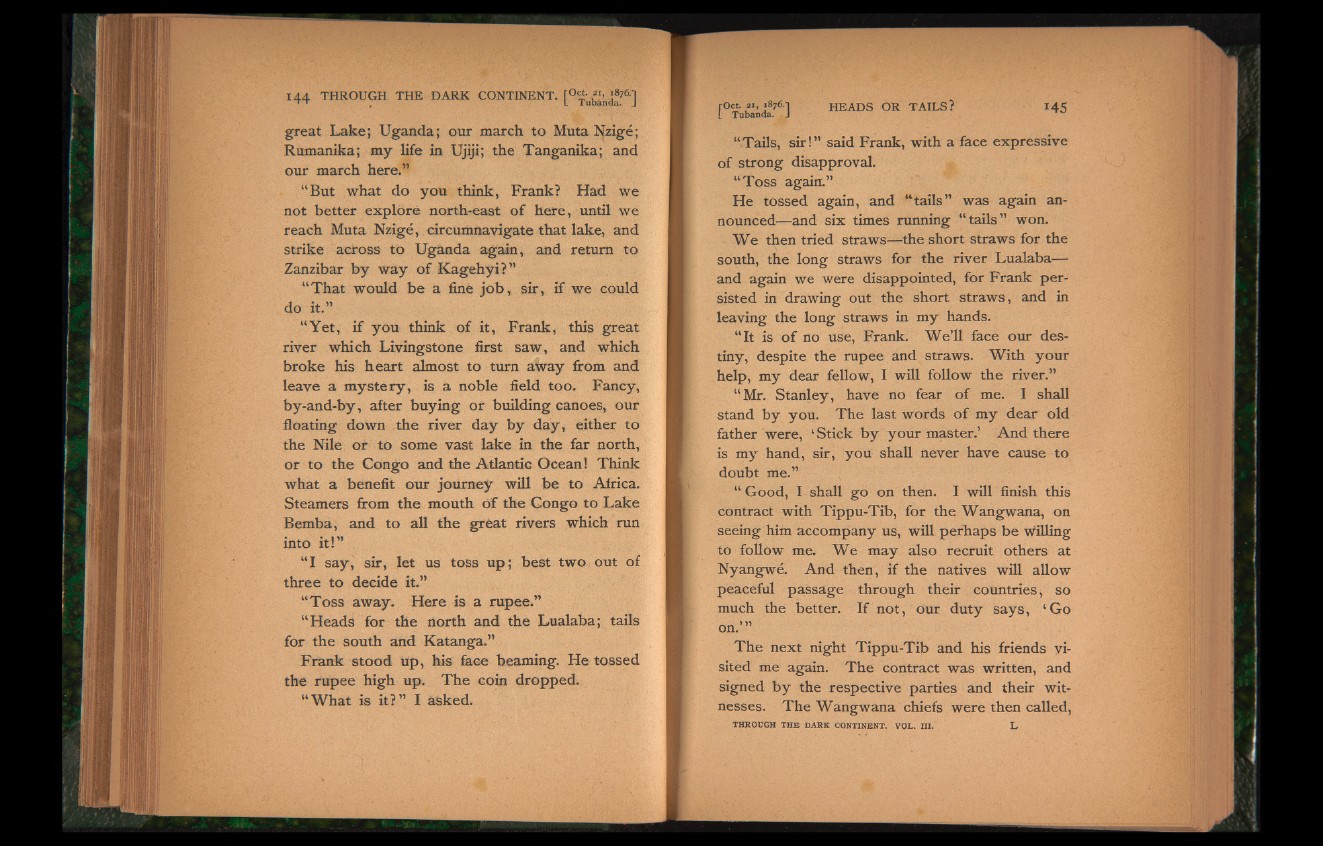
great Lake; Uganda; our march to Muta Nzige;
Rumanika; my life in Ujiji; the Tanganika; and
our march here.”
“But what do you think, Frank? Had we
not better explore north-east of here, until we
reach Muta Nzige, circumnavigate that lake, and
strike across to Uganda again, and return to
Zanzibar by way of Kagehyi?”
“ That would be a fine job, sir, if we could
do it.”
“ Yet, if you think of it, Frank, this great
river which Livingstone first saw, and which
broke his heart almost to turn away from and
leave a mystery, is a noble field too. Fancy,
by-and-by, after buying or building canoes, our
floating down the river day by day, either to
the Nile or to some vast lake in the far north,
or to the Congo and the Atlantic Ocean! Think
what a benefit our journey will be to Africa.
Steamers from the mouth of the Congo to Lake
Bemba, and to all the great rivers which run
into it!”
“ I say, sir, let us toss up; best two out of
three to decide it.”
“Toss away. Here is a rupee.”
“Heads for the north and the Lualaba; tails
for the south and Katanga.”
Frank stood up, his face beaming. He tossed
the rupee high up. The coin dropped.
“What is it?” I asked.
“Tails, sir!” said Frank, with a face expressive
of strong disapproval.
“ Toss again.”
He tossed again, and “ tails” was again announced—
and six times running “ tails” won.
We then tried straws—the short straws for the
south, the long straws for the river Lualaba—
and again we were disappointed, for Frank persisted
in drawing out the short straws, and in
leaving the long straws in my hands.
“ It is of no use, Frank. We’ll face our destiny,
despite the rupee and straws. With your
help, my dear fellow, I will follow the river.”
“Mr. Stanley, have no fear of me. I shall
stand by you. The last words of my dear old
father were, ‘Stick by your master.’ And there
is my hand, sir, you shall never have cause to
doubt me.”
“ Good, I shall go on then. I will finish this
contract with Tippu-Tib, for the Wangwana, on
seeing him accompany us, will perhaps be willing
to follow me. We may also recruit others at
Nyangwe. And then, if the natives will allow
peaceful passage through their countries, so
much the better. If not, our duty says, ‘ Go
on.’ ”
The next night Tippu-Tib and his friends visited
me again. The contract was written, and
signed by the respective parties and their witnesses.
The Wangwana chiefs were then called,
THROUGH THE DARE CONTINENT. VOL. III. L